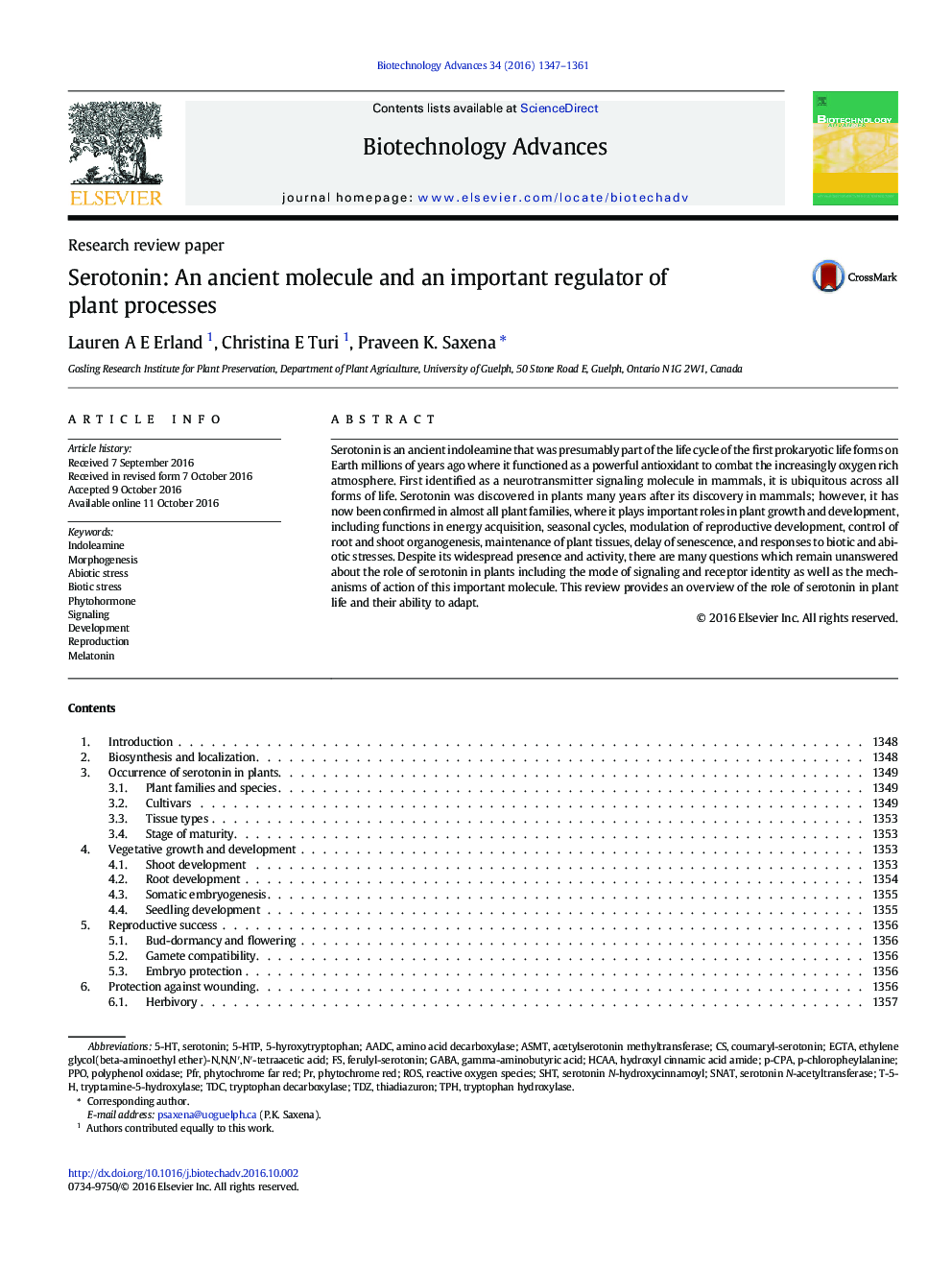| Article ID | Journal | Published Year | Pages | File Type |
|---|---|---|---|---|
| 6451193 | Biotechnology Advances | 2016 | 15 Pages |
â¢Serotonin is an ancient compound which evolved starting from the first life forms.â¢As an ancient molecule, serotonin has contributed to the fitness of plants.â¢Serotonin is an important mediator of plant developmental and survival processes.â¢Serotonin likely functions through interaction with diverse signaling cascades.â¢Serotonin a novel hormone with diverse agricultural applications
Serotonin is an ancient indoleamine that was presumably part of the life cycle of the first prokaryotic life forms on Earth millions of years ago where it functioned as a powerful antioxidant to combat the increasingly oxygen rich atmosphere. First identified as a neurotransmitter signaling molecule in mammals, it is ubiquitous across all forms of life. Serotonin was discovered in plants many years after its discovery in mammals; however, it has now been confirmed in almost all plant families, where it plays important roles in plant growth and development, including functions in energy acquisition, seasonal cycles, modulation of reproductive development, control of root and shoot organogenesis, maintenance of plant tissues, delay of senescence, and responses to biotic and abiotic stresses. Despite its widespread presence and activity, there are many questions which remain unanswered about the role of serotonin in plants including the mode of signaling and receptor identity as well as the mechanisms of action of this important molecule. This review provides an overview of the role of serotonin in plant life and their ability to adapt.
